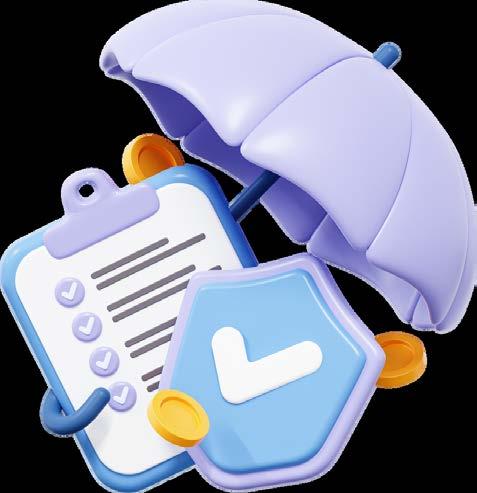




Poor communication is one of the leading causes of client dissatisfaction and loss of business — and insurance advisors are no exceptions. Now, you might be thinking, "But I'm an expert in my field! Surely my clients will understand the importance of my recommendations."
Wrong.
Let us break it down for you:

Effective communication isn't just about conveying your message; it's about delivering it in a way that resonates with your clients. Think of it like a recipe. You might have all the necessary ingredients, but if you don't follow the recipe precisely, your dish will be mediocre at best.
The same goes for client communication in insurance. You could have all the knowledge and expertise, but if you don't communicate it effectively, your clients won't grasp the full picture.
That’s not all: good client communication unlocks a whole world of positive benefits for both you and your clients.

Studies show that 70% of clients believe their advisor does not listen to their needs, underscoring the need for enhanced communication strategies to better understand and address client concerns. It is 5x (or more) times more costly to acquire new clients than to keep existing customers.
According to industry research, insurance agents who focus on nurturing relationships with existing customers are 60% more likely to achieve higher overall sales compared to those who primarily concentrate on acquiring new clients. This highlights the importance of effective communication in driving success through client retention.
A 5% increase in retention can boost your profits by 25-95%. A 10% increase in retention can boost your profits by 50-250%!
Improved efficiency and productivity: Communicating efficiently with your clients can save time and prevent misunderstandings that lead to wasted effort and resources.

Note: It's not just about what you say; the timing of your meetings is crucial too. This is an important factor to consider when scheduling appointments with decisionmakers.
Bottom line: Advisors who communicate clearly and proactively can streamline their workflow and boost productivity.
Enhanced trust and rapport: By showcasing your expertise and knowledge through effective communication, you can establish yourself as a reliable and trustworthy insurance advisor in the eyes of your clients and colleagues.

In addition to regular updates and policy reviews, proactive communication means anticipating your clients' needs and concerns before they surface. For instance, if you know that a specific insurance option may be affected by upcoming changes in regulations, reach out to inform your clients and explain how you’re addressing the matter.
Our recommendation: Be the agents who share information proactively—this instills confidence and reassurance in your clients about your expertise and their decision to work with you.
Avoid using technical jargon that may not resonate with your clients. This doesn’t mean you should skip explaining technical concepts altogether; in fact, you should always be ready to do so.
Learn to simplify your explanations using metaphors or comparisons that they can relate to.
This straightforward approach, using relatable language with clarity, will go a long way in establishing a foundation of trust and understanding.

We've all experienced it—a service provider promises to follow up and then disappears. Don’t let that be you as an insurance agent. Always follow through on commitments to your clients and check in on any questions or concerns they may have. This level of attentiveness will help you stand out in the industry.
Yes, as an insurance agent, it’s important to remember that your clients are people too. Whenever the chance arises, don’t hesitate to showcase your personality and add a dash of humor to your conversations. Your clients will definitely appreciate it!
So how can you make your interactions more personal?
Incorporate their interests into your discussions without overdoing it. If a client is passionate about a particular sport, chat about their favorite team. If they love cooking, share a recipe or a cooking tip.
Enhance your communication with greeting cards, personal notes, and relevant non-insurance-related topics whenever appropriate. Research shows that these small personal touches can significantly strengthen the client-agent relationship.
